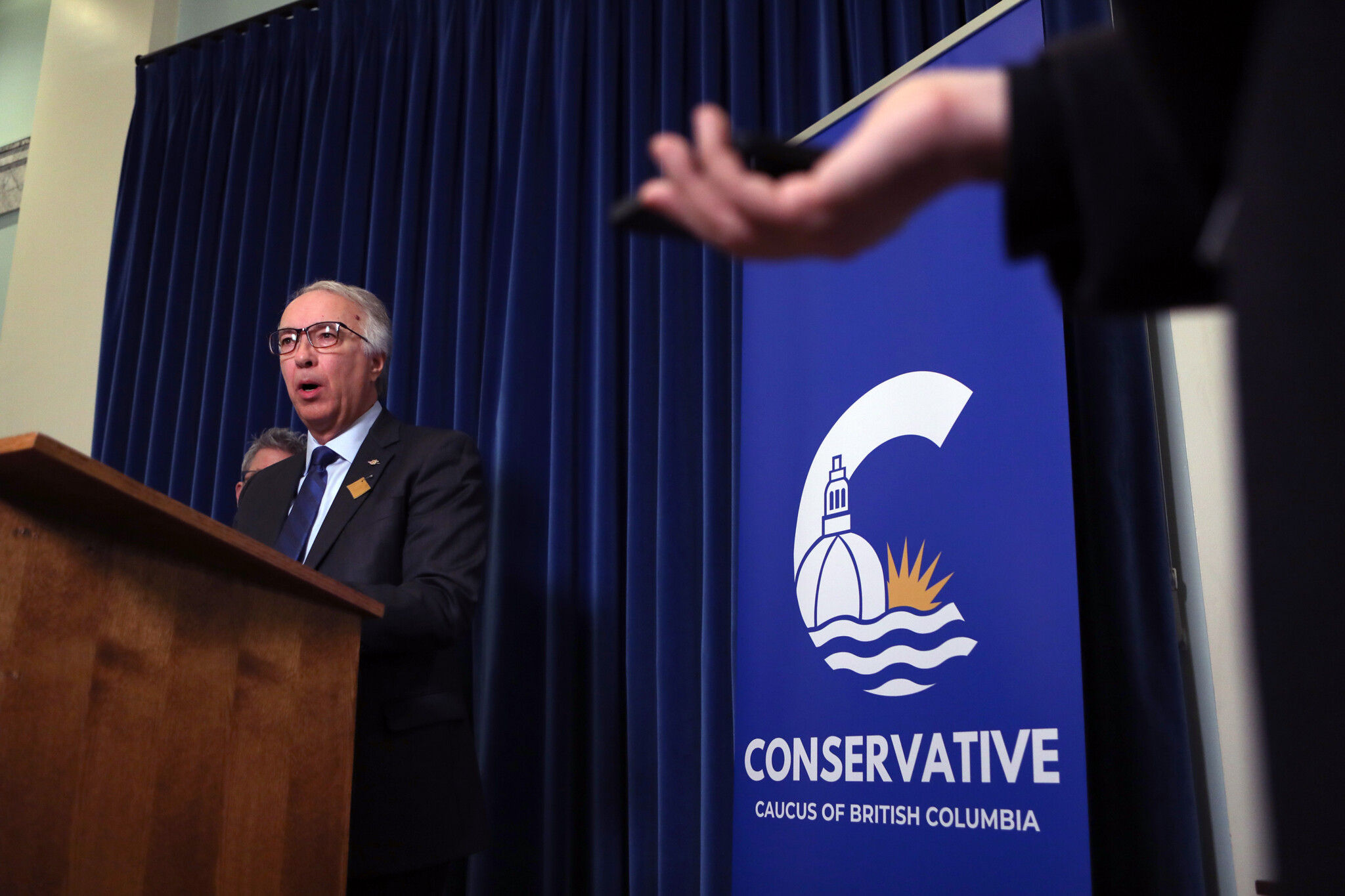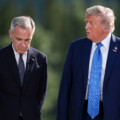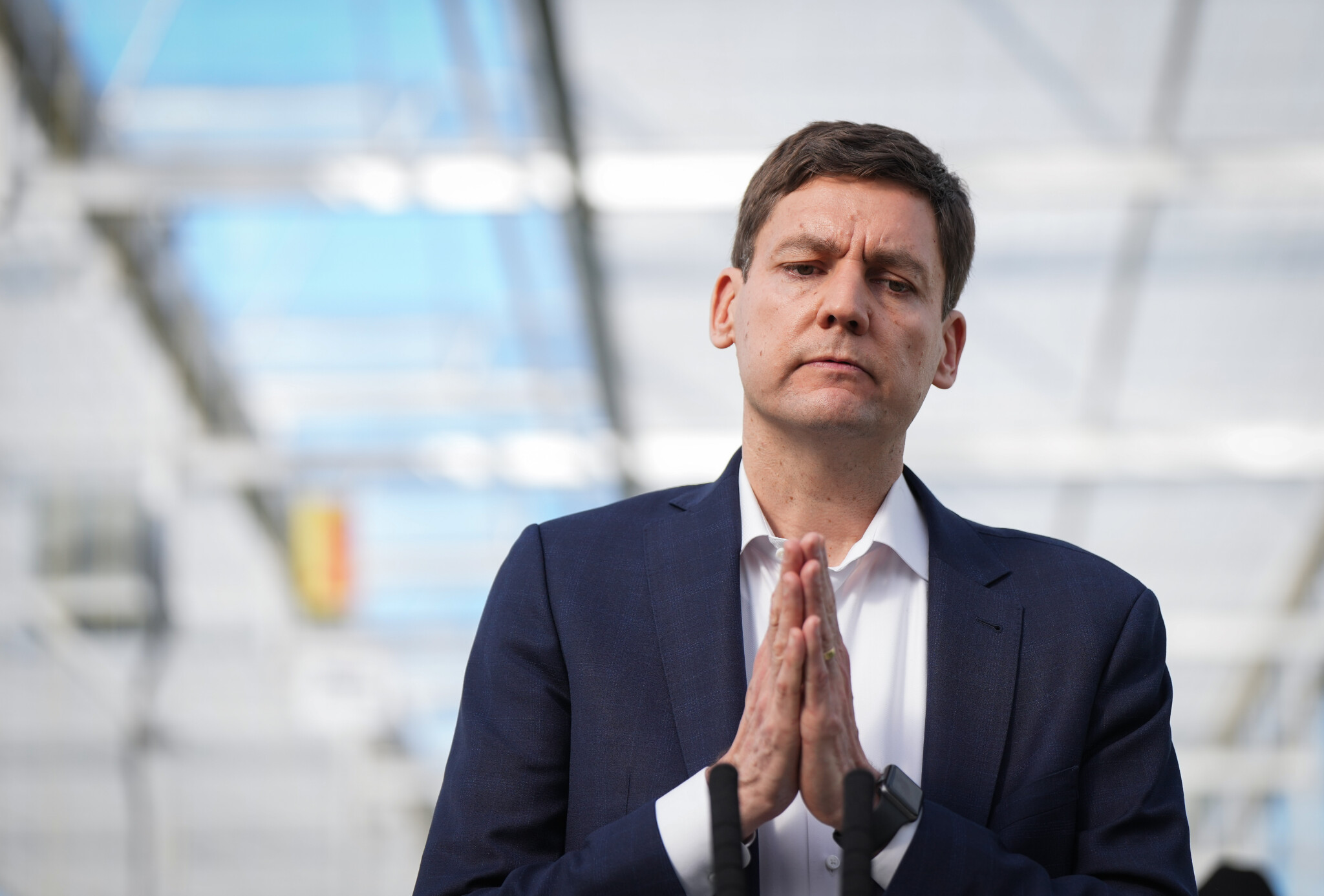Two months before the 2013 B.C. election, Vancouver’s Province newspaper ran a front-page photo of front-running BC NDP leader Adrian Dix headlined: “If this man kicked a dog, he’d still win the election.”
It’s possible Dix read that and kicked his way through an entire kennel, but before long the puppy lovers and much of the province roused from its sleep. Memories of a shambolic NDP government years earlier were still fresh. B.C. Premier Christy Clark trounced him in a leader’s debate, organizers identified half of her support in the campaign’s last 10 days, and she got her own kick—at the can—for four more years in charge. Public opinion can swing that way.
Only a few months ago, Premier David Eby had his own kick-the-pooch moment. His party held a 20-plus-point lead in the approach to an October 19 provincial election campaign. The BC Liberals, questionably renamed BC United in case one day they wish to launch a soccer franchise, were on a slide deserving of a water park. And the BC Conservatives, with its privacy-pod caucus of two, was at a remove from most everyone’s thoughts on relevance and importance. Emergency Info BC was ready to text landslide alerts to voters.
Sure, amid those party standings one could find nearly half of the province telling pollsters it wanted change after seven years, but to what? Surely, not them!
Eby was hardly ordained to be premier. He was following a tough act as a frostier, stiffer NDP leader. If John Horgan was Mr. Chuckles as premier, Eby was Mr. Knuckles, as his attorney general. If Horgan was the leader you wanted to drink with, Eby seemed to be the leader to drive you to drink. But lo and behold, the job revealed in the six-foot-seven lawyer a stand-up comic’s humour coupled with a nerdy policy command and an indefatigable work ethic.
Eby riskily imprinted a more ideological NDP identity on Horgan’s more centrist party, emphasizing social equity over economic growth. Remarkably, as it took hold, it did not pose an apparent electoral threat. Until now.
It helped Eby that BC United leader Kevin Falcon developed a finger-wagging, “I’ve-got-a-plan, just-you-wait” swagger. His commercials position him as the most intelligent person in the room, but not necessarily the smartest. John Rustad’s BC Conservatives weren’t anywhere in the conversation.
But it was eerie for the longest time. Month after month, polls were suggesting public passivity in swallowing crises in living affordability, housing costs and shortages, health-care waitlists and doctor scarcities, mill closures, per capita GDP declines, opioid overdoses, resource development delays, climate change overreach, decriminalized open drug use, off-leash public spending—the list could go on. It was almost as if Eby could kick…
Everyone has a theory on why the surveys have turned on a dime, but can at least agree they have—and may continue. The sediment of grievances against the government have somehow fossilized, and where years ago Falcon would have been the next man up, many more want palpable change and think it would be better found with Rustad.
Most polls have Rustad’s party in a statistical tie with the government (one yesterday had the NDP up by 11, mind you), even though 54 percent of the province still doesn’t know the identity of its leader, a former BC Liberal minister. BC United and the Greens are well behind. Young people, in particular, are latching on to the Conservatives; older people, somewhat surprisingly, are not— at least not yet.

B.C. Conservative Party leader John Rustad speaks to members of the media during a year-end availability at legislature in Victoria, B.C., on Wednesday, December 6, 2023. Chad Hipolito/The Canadian Press
This upending may not last until October 19, but for the time being, we have a game on our hands. Rustad, ousted by Falcon from the Liberals two years ago after questioning climate change and celebrating CO2 on social media, is the beneficiary of word association as a perceived branch plant of Pierre Poilievre’s party. As he rides free media coverage, his critics note he has pesky challenges beyond any policy concerns: things like raising money, assembling a campaign team, luring winnable candidates, identifying support, and getting it out on E-Day. You know, the stuff that wins elections.
Where Falcon has had trouble defining his party’s positions, Rustad has clearer schemes. His policies are long-sought catnip for some and long-avoided kryptonite for others: the skepticism about climate change, the opposition to the carbon tax, the resolve to strip Sexual Orientation and Gender Identity (SOGI) curriculum from the classroom, the support for private and public health-care delivery, the insistence on mandatory treatment for addicts (even if it means employing the notwithstanding clause), the push for steeper criminal penalties, and the desire for a provincial immigration policy, among the mix.
Certainly, any impetus to generate economic growth through resource development, tax reduction, and fiscal responsibility would be a 180 from a government that has viewed business as an ATM and wealth as a flaw that can be fleeced indefinitely. Seven years in, executives still lament meetings with ministers who oversee 10-figure spending yet can’t read income statements or balance sheets.
Not surprisingly, under the NDP, B.C. has gone from the country’s best economy to its worst. The Business Council of BC recently used the government’s own figures to conclude its CleanBC climate change strategy would reduce the heft of 2030’s economy to 2013’s—back when Dix, theoretically, could kick that dog.
Eby isn’t oblivious to this newfound peril. He’s currently in dial-back mode as the campaign emerges. He was the strongest advocate of piloting drug decriminalization, only to realize schoolyards became repositories for needles and addicts could publicly use drugs with impunity, even as hospital patients. When not only his MLAs but his nurses’ union friends soured on the idea, he begged Ottawa for recriminalization post-haste. He also shelved controversial land reforms unfurled with little consultation. A party veteran told me the premier is, thankfully, not Dix, but has a flaw for creating too many priorities and expectations. These days, Eby doesn’t focus on Falcon; Rustad is his target.
Falcon and BC United are as responsible as anyone for the Conservative surge. Whether it was disqualifying conservative commentator Aaron Gunn from the 2021 leadership race, shifting social policy to the centre-left, or bumping Rustad out of the nest for him to then take the Conservative leadership, all it has done is rupture the federal Conservative/blue-Liberal coalition that ruled from 2001 to 2017.
Magical thinkers wonder why the two parties can’t just conjoin to topple the BC NDP, but that would require the onset of considerable amnesia and grace. Rustad has hardly forgiven Falcon, whose party generally sneers at the BC Conservatives as antediluvians. The most recent BC United proposal involved the two parties divvying ridings to not compete with each other, then awarding the premiership to the leader of the party winning the most seats. Conservatives correctly balked, and the BC United took to social media to blame the front-runners for nixing what, to them in this steep decline, seems a swell idea.
The only plausible union could come starting the night of October 19, if neither Eby nor Rustad secure a majority and need a dance partner. Seven years ago, a confidence-and-supply agreement cemented the NDP and Greens to take power from the BC Liberals. Seven years later, if the Conservative surge plateaus roughly where it is, Falcon may well be the kingmaker of the man he once kicked.
Recommended for You

Need to Know: Mark Carney’s digital services tax disaster

Theo Argitis: Carney is dismantling Trudeau’s tax legacy. How will he pay for his plan?

Kirk LaPointe: B.C.’s ferry fiasco is a perfectly Canadian controversy

‘I want to make Canada a freer country’: Conservative MP Andrew Lawton talks being a newbie in Parliament, patriotism, and Pierre Poilievre’s strategy





